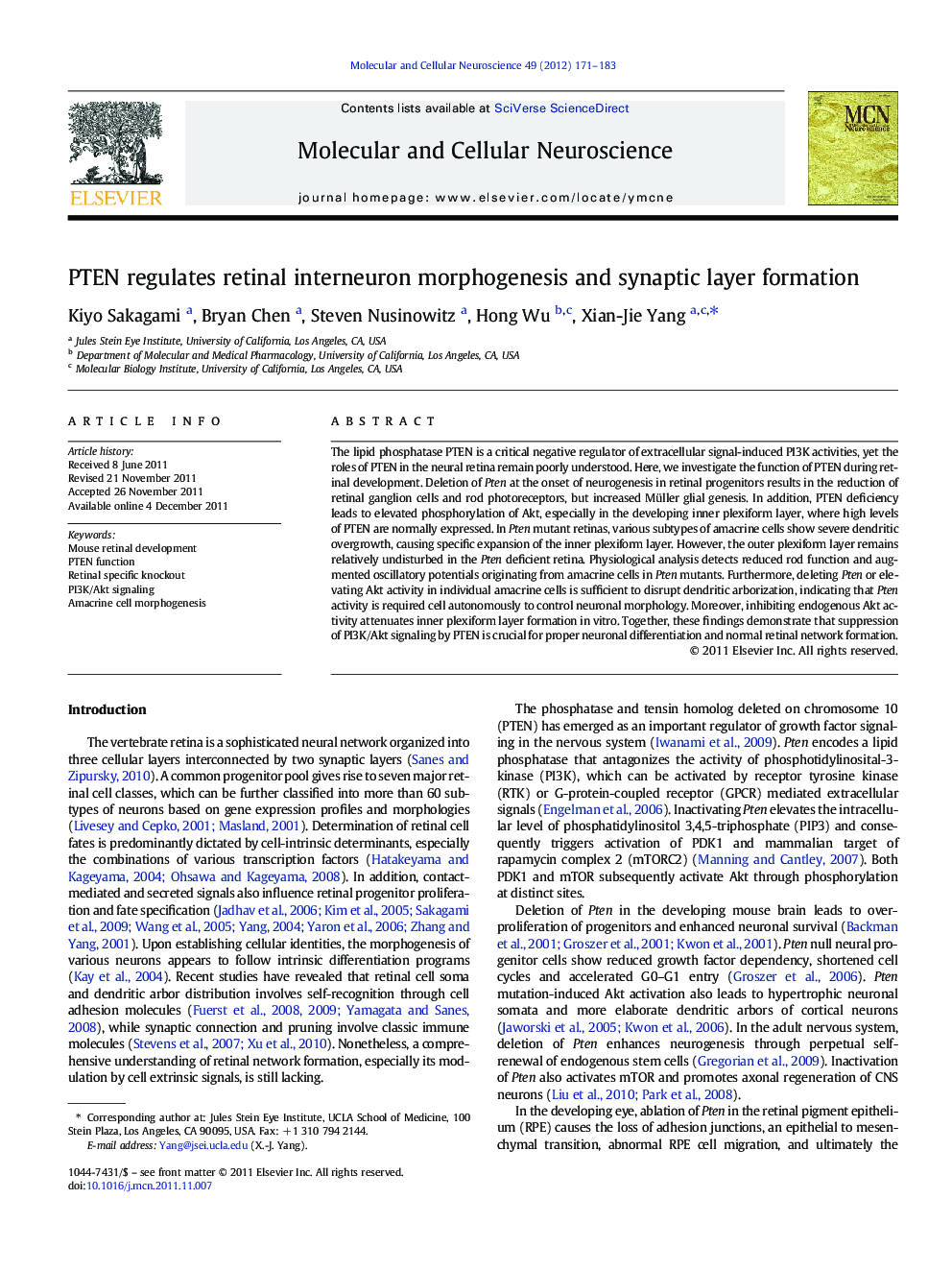| Article ID | Journal | Published Year | Pages | File Type |
|---|---|---|---|---|
| 10956548 | Molecular and Cellular Neuroscience | 2012 | 13 Pages |
Abstract
The lipid phosphatase PTEN is a critical negative regulator of extracellular signal-induced PI3K activities, yet the roles of PTEN in the neural retina remain poorly understood. Here, we investigate the function of PTEN during retinal development. Deletion of Pten at the onset of neurogenesis in retinal progenitors results in the reduction of retinal ganglion cells and rod photoreceptors, but increased Müller glial genesis. In addition, PTEN deficiency leads to elevated phosphorylation of Akt, especially in the developing inner plexiform layer, where high levels of PTEN are normally expressed. In Pten mutant retinas, various subtypes of amacrine cells show severe dendritic overgrowth, causing specific expansion of the inner plexiform layer. However, the outer plexiform layer remains relatively undisturbed in the Pten deficient retina. Physiological analysis detects reduced rod function and augmented oscillatory potentials originating from amacrine cells in Pten mutants. Furthermore, deleting Pten or elevating Akt activity in individual amacrine cells is sufficient to disrupt dendritic arborization, indicating that Pten activity is required cell autonomously to control neuronal morphology. Moreover, inhibiting endogenous Akt activity attenuates inner plexiform layer formation in vitro. Together, these findings demonstrate that suppression of PI3K/Akt signaling by PTEN is crucial for proper neuronal differentiation and normal retinal network formation.
Keywords
Related Topics
Life Sciences
Biochemistry, Genetics and Molecular Biology
Cell Biology
Authors
Kiyo Sakagami, Bryan Chen, Steven Nusinowitz, Hong Wu, Xian-Jie Yang,
